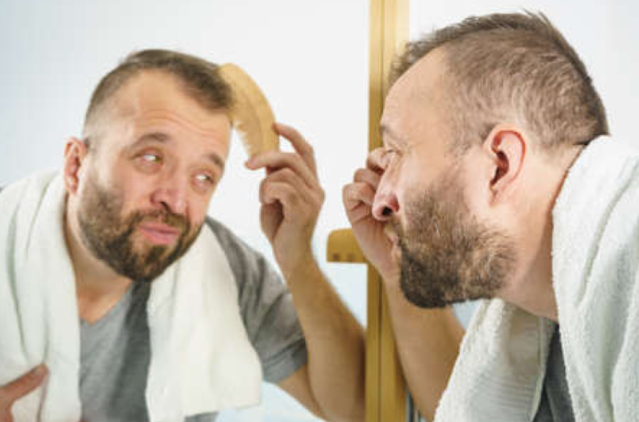Understanding Men's Hormonal Changes with Age
Understanding Men's Hormonal Changes with Age
Hormones play a critical role in regulating various bodily functions, influencing everything from growth and metabolism to mood and sexual function. Throughout a man's life, hormonal fluctuations are a natural and normal part of the aging process. Understanding these changes is crucial for maintaining optimal health and well-being. In this comprehensive article, we will delve into the hormonal changes that men experience as they age, explore the physical and emotional effects of these changes, and provide insights into managing and optimizing hormone-related health.
Introduction
Hormones are chemical messengers produced by various glands in the body's endocrine system. They help regulate nearly every physiological process, including growth, metabolism, immune function, and reproduction. While hormones play a significant role throughout a person's life, hormonal levels tend to change as individuals age.
For men, hormonal changes can be particularly noticeable as they enter middle age and beyond. These changes are primarily driven by a decrease in testosterone, the primary male sex hormone. Understanding how these hormonal shifts affect the body and mind is essential for maintaining health and addressing age-related concerns.
Chapter 1: Testosterone and Aging
1.1 Testosterone: The Key Hormone
Testosterone is the primary male sex hormone responsible for the development of male characteristics, such as muscle mass, facial hair, and a deep voice. It also plays a role in sexual function, mood regulation, and overall well-being.
1.2 Natural Decline
As men age, it is entirely normal for testosterone levels to decline gradually. This process, known as andropause or "male menopause," typically begins around the age of 30 and continues throughout life. However, the rate of decline can vary significantly from person to person.
Chapter 2: Physical Effects of Hormonal Changes
2.1 Muscle Mass and Strength
Testosterone is essential for maintaining muscle mass and strength. As testosterone levels decline with age, men may experience muscle loss, reduced muscle tone, and a decrease in physical strength.
2.2 Bone Health
Testosterone also plays a crucial role in bone health. Lower testosterone levels can lead to a higher risk of osteoporosis and fractures. Maintaining bone density through diet, exercise, and, in some cases, medication is vital for preventing bone-related issues.
2.3 Sexual Function
Testosterone is closely linked to sexual function, including libido and erectile function. While a decline in testosterone can affect sexual desire and performance, it is essential to recognize that various factors, including psychological and relationship factors, can influence sexual health.
2.4 Fat Distribution
Changes in hormone levels can affect fat distribution in the body. As testosterone declines, men may experience an increase in abdominal fat, which can contribute to a higher risk of metabolic conditions like diabetes and heart disease.
2.5 Hair Loss
Some men may notice hair thinning or loss as they age. While genetics play a significant role in male pattern baldness, hormonal changes can also contribute to hair loss.
2.6 Sleep Disturbances
Hormonal fluctuations can disrupt sleep patterns, leading to insomnia or sleep disturbances. Poor sleep quality can have a cascading effect on overall health and well-being.
Chapter 3: Emotional and Cognitive Effects
3.1 Mood Changes
Hormonal changes, including a decline in testosterone, can impact mood regulation. Some men may experience mood swings, increased irritability, or symptoms of depression as they age.
3.2 Cognitive Function
While the relationship between testosterone and cognitive function is complex, some studies suggest that low testosterone levels may be associated with cognitive decline, including problems with memory and concentration.
3.3 Fatigue and Energy Levels
Reduced testosterone levels can lead to feelings of fatigue and a decrease in energy levels. Maintaining a healthy lifestyle, including regular exercise and a balanced diet, can help combat fatigue.
Chapter 4: Coping with Hormonal Changes
4.1 Lifestyle Modifications
- Regular Exercise: Engaging in physical activity can help maintain muscle mass, boost mood, and improve overall health.
- Balanced Diet: A nutritious diet rich in fruits, vegetables, lean proteins, and healthy fats can support overall well-being.
- Stress Management: Practicing stress-reduction techniques such as mindfulness, meditation, or yoga can help mitigate mood swings and reduce stress-related hormonal changes.
- Adequate Sleep: Prioritize good sleep hygiene to improve sleep quality and overall health.
4.2 Medical Interventions
- Hormone Replacement Therapy (HRT): In some cases, healthcare providers may recommend HRT to address hormonal imbalances. This therapy involves replacing or supplementing testosterone.
- Medications: For conditions like osteoporosis or erectile dysfunction, medications may be prescribed to manage symptoms.
- Counseling and Therapy: Psychological support and therapy can help individuals cope with emotional and cognitive changes associated with hormonal shifts.
4.3 Regular Health Check-Ups
Regular check-ups with a healthcare provider are crucial for monitoring hormonal changes and addressing age-related health concerns. These appointments provide an opportunity to discuss symptoms, assess risk factors, and determine appropriate interventions.
Chapter 5: Hormonal Changes and Quality of Life
While hormonal changes are a natural part of aging, they do not have to equate to a decrease in quality of life. With proactive lifestyle choices, regular healthcare monitoring, and appropriate medical interventions, many men can navigate hormonal changes with grace and continue to lead fulfilling and healthy lives.
Chapter 6: Conclusion
Understanding men's hormonal changes with age is essential for promoting health and well-being throughout the lifespan. While hormonal fluctuations are a natural part of the aging process, they can be managed effectively with the right knowledge, lifestyle modifications, and medical support.
By staying informed, proactively addressing symptoms, and seeking medical guidance when needed, men can optimize their physical and emotional health as they age, ensuring that they enjoy a vibrant and fulfilling life at every stage.

















No comments